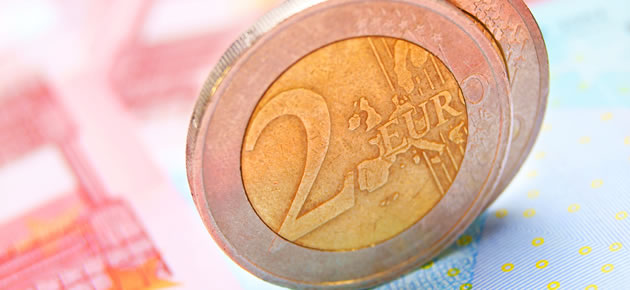The Euro was only briefly phased by yesterday’s disappointing domestic inflation data and the common currency adopted a stronger position against the Australian Dollar overnight.
With investors focusing on today’s ZEW economic sentiment surveys for Germany and the Eurozone the Euro to Australian Dollar (EUR/AUD) exchange rate stayed higher even as the ‘Aussie’ gained against peers like the ‘Greenback’.
Following the publication of minutes from the Reserve Bank of Australia’s latest policy meeting, the Australian Dollar to US Dollar (AUD/USD) exchange rate advanced to within touching distance of a three-month high.
The minutes intimated that Australian interest rates would remain steady in the near future and commented; ‘There were further signs that low interest rates were providing support to activity. The most prudent course was likely to be a period of stability in interest rates.’
The central bank also refrained from adopting an aggressive rhetoric regarding the Australian Dollar’s exchange rate.
Instead of overtly pushing for a weaker domestic currency the RBA merely commented that while the currency remains high by historical standards, the ‘decline in the exchange rate seen to date would assist in achieving balanced growth in the economy.’
While the ‘Aussie’ went on to dip after the People’s Bank of China fixed the Yuan at a slightly lower level, the currency was still performing well against its North American counterpart and was hardly moved by the news that a major Chinese property developers may have collapsed.
According to RBS strategist Greg Gibbs; ‘The currency has traded very well this year. There’s been a number of negative stories from China this year, and none of it has weakened the Australian Dollar. Perhaps a lot of the downside risk for the currency around China was built in last year, and the market may be sitting a little bit underweight the currency. So it’s not as reactive to these kinds of scare stories out of China as it was last year.’
This morning data has shown that Germany’s wholesale price index fell by more in February year-on-year than in January, declining 1.8 per cent last month following January’s 1.7 per cent slump.
The figures had little effect on the Euro.
Economists have predicted that today’s German ZEW economic sentiment survey will show that the measure declined from 55.7 to 52 in March, with the gauge of the current situation rising from 50 to 52.
If the results surprise the Euro could experience notable volatility as trading continues.
Further EUR/AUD movement could be inspired by the Eurozone’s trade balance figures and the release of Australia’s Westpac Leading Index.
Euro (EUR) Exchange Rates
[table width=”100%” colwidth=”50|50|50|50|50″ colalign=”left|left|left|left|left”]
Currency, ,Currency,Rate ,
Euro, ,US Dollar,1.3910,
,US Dollar,1.3910,
Euro, ,British Pound,0.8380,
,British Pound,0.8380,
Euro, ,Australian Dollar,1.5335,
,Australian Dollar,1.5335,
Euro, ,New Zealand Dollar,1.6260,
,New Zealand Dollar,1.6260,
Euro, ,Canadian Dollar,1.5360,
,Canadian Dollar,1.5360,
[/table]



